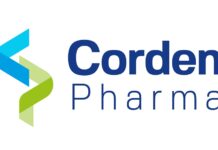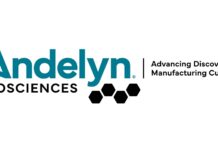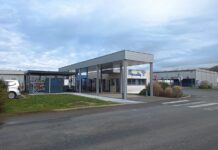“The grant from the Bristol-Myers Squibb Foundation will allow us the opportunity to better reach and inform these at-risk patients in our area and surrounding Maryland counties about the need for lung cancer screening while providing desperately needed education and resources for smoking cessation.”
To mark National Cancer Prevention Month, the Bristol-Myers Squibb Foundation today announced eight grants totaling nearly $11.5 million that will help make lung and skin cancer screening programs, care and patient support more accessible to underserved populations. The goal is to develop, validate and sustain models that deliver equitable and optimal outcomes.
The grants were awarded through the Foundation’s Bridging Cancer Care™ and Specialty Care for Vulnerable Populations initiatives. Bridging Cancer Care focuses on pilot projects in select southeastern U.S. states with the highest lung cancer burden to advance evidence-based strategies to improve lung cancer screening and assist patients diagnosed with lung cancer access and navigate cancer care and community-based supportive services. Specialty Care for Vulnerable Populations supports care collaborations among primary care and specialty care providers and patient engagement and social support in order to improve the quality of specialty care services for underserved populations living with lung cancer, skin cancer or HIV.
Lung cancer is the leading cause of cancer death in the U.S., with a mortality rate higher than any other cancer, primarily because the cancer is not detected or treated at an early stage.
“Obstacles to screening, especially for minority and underserved populations, often result in patients receiving a late-stage diagnosis, which dramatically reduces their chances for survival,” says John Damonti, president, Bristol-Myers Squibb Foundation. “We are pleased to engage our partners to develop innovative programs that will improve the health outcomes of underserved patient populations facing lung cancer, to help prevent skin cancer among migrant worker populations and to advocate for system-wide change to remove barriers to specialty care.”
The Association of Community Cancer Centers (ACCC) received a three-year, $4.1 million grant to develop a collaborative approach to improving lung cancer care for Medicaid patients. ACCC will develop and validate an Optimal Care Coordination Model and engage ACCC’s member cancer programs and practices which includes more than 20,000 multidisciplinary providers, community health centers, patient advocacy organizations, health system leadership, payers and policymakers, to strengthen and complete lung cancer systems of care and improve outcomes for Medicaid patients.
“Lung cancer is the deadliest cancer facing our nation today, and tackling this disease requires a fully integrated approach that treats the full patient,” says Steven L. D’Amato, BSPharm, BCOP, president, ACCC. “With this collaboration, ACCC looks forward to bringing our unmatched expertise in multidisciplinary cancer care to improve cancer coordination across the country so that vulnerable populations living with lung cancer have access to the treatment they need.”
Anne Arundel Medical Center received a three-year, $1.25 million grant to replicate and expand the medical center’s successful Rapid Access Chest and Lung Assessment Program, which reduced the time from lung cancer screening to diagnosis from as much as four months for outpatients to an average of 16 days by quickly identifying, engaging and managing patients through an increased centralization of care and a thoracic nurse navigator. The program will focus on low-income and racial minority patients who are at risk for or diagnosed with lung cancer in Maryland’s Anne Arundel, Calvert and Prince George counties.
“While Anne Arundel Medical Center’s DeCesaris Cancer Institute’s lung screening and thoracic oncology programs have continued to expand over the past five years, our successes have been more limited among vulnerable, lower-income and minority populations,” says Stephen Cattaneo, MD, medical director of Thoracic Oncology at Anne Arundel Medical Center. “The grant from the Bristol-Myers Squibb Foundation will allow us the opportunity to better reach and inform these at-risk patients in our area and surrounding Maryland counties about the need for lung cancer screening while providing desperately needed education and resources for smoking cessation.”
The American Cancer Society received a three-year, $1.25 million grant to partner with three federally qualified heath centers (FQHCs) – Valley Health in Huntington, West Virginia; Christ Community Health Services in Memphis, Tennessee; and a third to be identified – to introduce patient education and clinic-based navigation services to support patients from lung cancer screening through diagnosis.
Screening for lung cancer in high-risk current or former smokers is one of the most important emerging cancer control opportunities. The FQHCs will work with primary and specialty care providers to ensure they are prepared to assess patient risk for lung cancer, support a shared decision about screening and provide referrals for those with a positive screening result.
“Implementing lung cancer screening demands an integrated system involving primary care, radiology, pulmonary physicians, screening facilities, as well as a cancer treatment team,” says Richard Wender, MD, chief cancer control officer for the Society. “This new grant will allow Society staff to work with the FQHCs to learn how to build capacity to provide high-quality lung cancer screening for low-income communities.”
The Patient Advocate Foundation received a three-year, $1.36 million grant for a program linking West Virginia’s lung cancer patients to case management support, which responds to a decision for the Centers for Medicaid and Medicare Services to provide coverage for annual low-dose CT lung cancer screening for at-risk patients. The project will identify barriers to care for vulnerable populations and develop strategies to link patients to providers, increase community awareness of lung cancer screening and make available the Lung Cancer CareLine, a system that provides hands-on comprehensive navigation of the health care system to increase access to emerging therapies and treatment.
The Ralph Lauren Center for Cancer Care and Prevention (RLC), in partnership with Memorial Sloan Kettering Cancer Center, received a two-year, $604,582 grant to pilot a lung cancer screening and continuum of care access program for patients in underserved and high-risk populations in the Harlem and northern Manhattan sections of New York City.
RLC will use new approaches, including community outreach and patient incentives, to encourage more people to get screened for lung cancer. Outreach workers and care navigators from RLC will partner with community-based organizations, houses of worship and primary health care centers to educate people about the importance of lung cancer screening and navigate them through care. Memorial Sloan Kettering will also help to identify high-risk patients through smoking cessation programs as well as assist with access to treatment and care.
“The Ralph Lauren Center for Cancer Care and Prevention has a strong history of pioneering new models, including a groundbreaking patient navigation program in East Harlem,” says Gina Villani, MD, MPH, chief executive officer, RLC. “The patients we serve face numerous obstacles to medical screening and care, and often feel disenfranchised by the medical community. Our community-based and community-focused approach will engage those patients to be screened and, if needed, treated for lung cancer.”
Farmworker Justice received a two-year, $750,000 grant to engage a diverse range of stakeholders to develop a demonstration project in California and Florida to promote community integration of skin cancer services and reduce the impact of skin cancer among farmworkers and their families. Although farmworkers in the U.S. are exposed to living and working conditions that double their risk of developing melanoma and other skin cancers, access to skin cancer prevention, screening and specialty care and services are difficult to obtain.
“In addition to providing access to skin cancer detection services, resulting in earlier detection of skin cancer and appropriate skin cancer treatment, this project will develop and share effective approaches and strategies to address the particular needs and wishes of farmworker communities and increase the ability to inform and influence national private and public sector decision-makers to better respond to this important public health issue,” says Bruce Goldstein, president, Farmworker Justice.
In addition, two program support grants totaling nearly $2 million were awarded to FSG and The Center for Health Law and Policy Innovation at Harvard Law School to help translate successful models emerging from Specialty Care for Vulnerable Populations and Bridging Cancer Care into sustainable cancer and specialty care services through alternative funding, payment reform and institutional and public policy change.




















